Annie Crummer
Annie Crummer has one of New Zealand’s best-loved and most travelled voices. That voice has taken her from Avondale to Paisley Park, from local talent quests to duets with Sting, and back to her Rarotongan heritage.
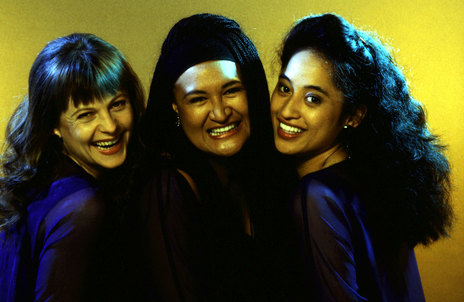
Shortland Street's The Katene Sisters, L to R: Lisa Crittenden, Annie Crummer, Nancy Brunning.
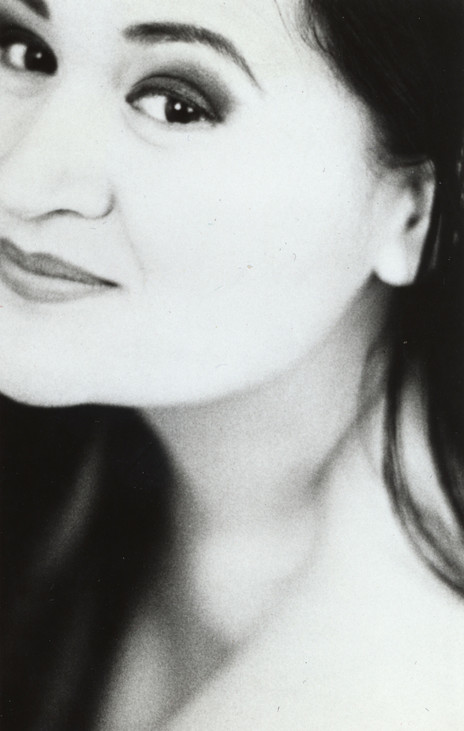
Annie Crummer in 1992, at the release of her album Language on WEA
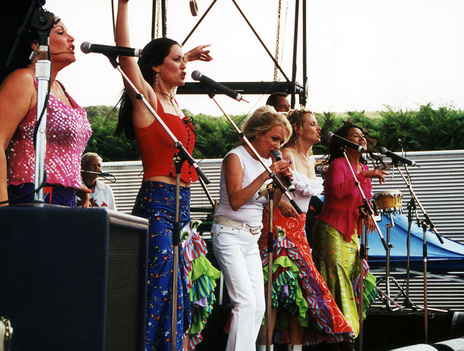
When The Cat's Away: Debbie Harwood, Barbara Griffin, Margaret Urlich, Sharon O'Neill, Kim Willoughby and Annie Crummer, with Noel Crombie behind Sharon and Kim
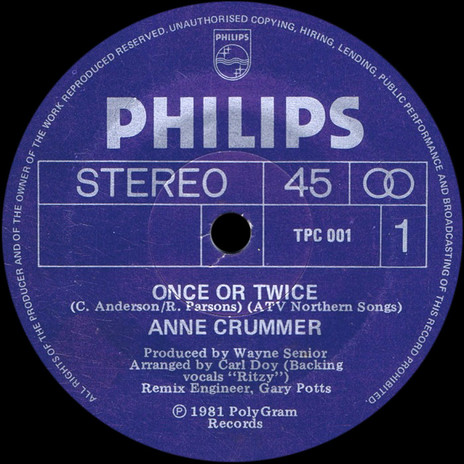
Annie Crummer - Once Or Twice (PolyGram/Philips, 1981)
Katene Sisters - Keeping Up The Love Thing (1993)
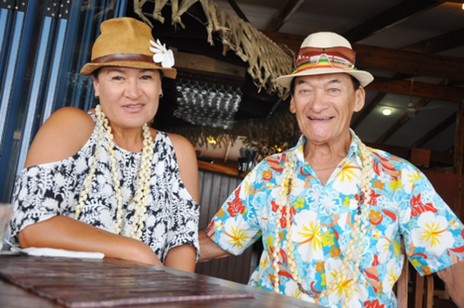
“I’m back in the race, I’m racing and I love it baby!” - in 2015 Will Crummer, with his daughter Annie, talks to the Cook Islands News about his return to Rarotonga after 55 years away.
Photo credit:
Cook Islands News
Netherworld Dancing Toys with Annie Crummer, performing 'For Today' at the 2018 APRS Silver Scroll Awards.
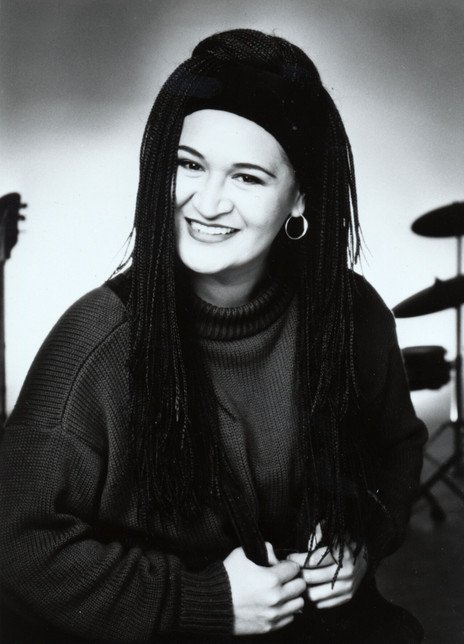
Annie Crummer, 1994
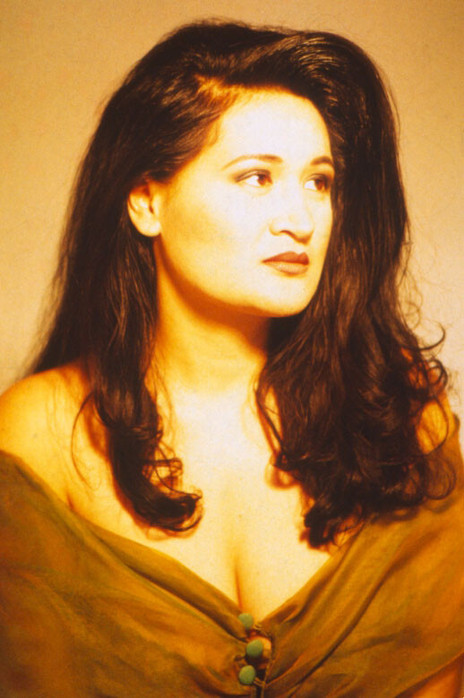
Annie Crummer - a publicity shot from the 1990s
Annie Crummer - See What Love Can Do (1992)
Annie Crummer on Debbie Harwood's 2007 Classic Hits radio series Give It A Girl
When The Cat's Away documentary (1987)
Cook Island-New Zealand singer and songwriter Annie Crummer and her father Will Crummer sing a traditional Cook Islands song for RNZ Pacific.
Netherworld Dancing Toys - For Today (1985)
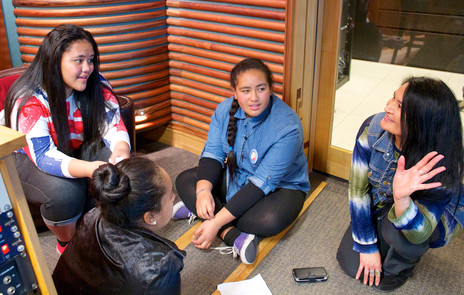
Annie Crummer, right, coaching Tempo Style, recording at Roundhead Studios, Auckland, in 2014. From left are Meleseini Puletau (Selwyn College), Maxine Vaihu (St Mary's College), and Julia Tu'unga (Auckland Girls Grammar). Annie mentored the trio, whose song 'Islands' won the 2014 Hook, Line and Sing-A-Long annual songwriting competition sponsored by Music Education New Zealand Aotearoa (MENZA) and The New Zealand Music Commission. and who perform as Tempo Style, had the opportunity to record their song at the prestigious Roundhead Studios opened by Neil Finn in 2007.
Photo credit:
New Zealand Music Commission
Sonny Day - Savin' Up (1985, featuring Annie Crummer, Beaver, Josie Rika, Neil Edwards, Tama Renata and others)
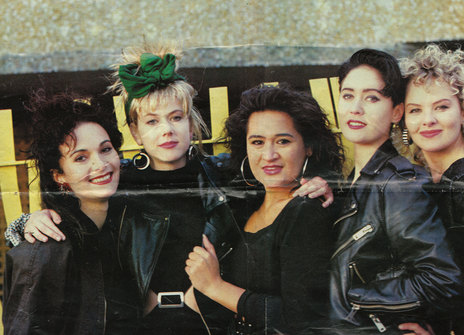
A poster for the Melting Pot single: Debbie Harwood, Dianne Swann, Annie Crummer, Margaret Urlich and Kim Willoughby
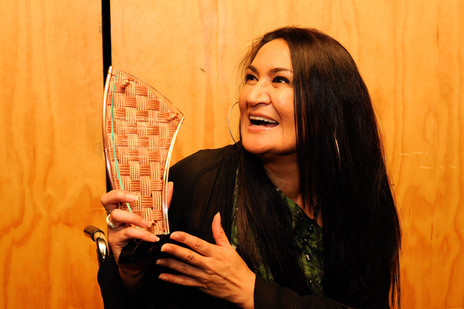
Annie Crummer with her Lifetime Achievement Award at the Pacific Music Awards, 2011
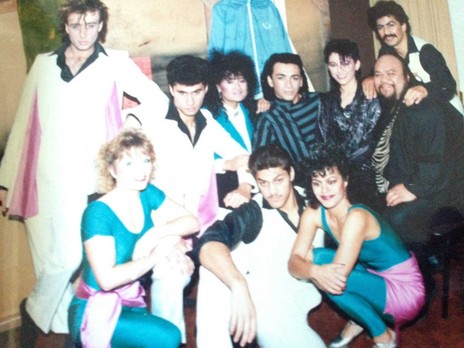
An allstar cast in the 1980s, which includes Christina Asher, Dalvanius, Mark Williams and Annie Crummer
Photo credit:
Christina Asher collection
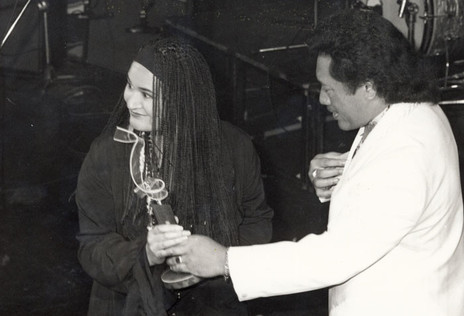
Annie Crummer, 1994
Cook Island-New Zealand singer and songwriter Annie Crummer talks to her father Will Crummer about Cook Islands language and their culture.
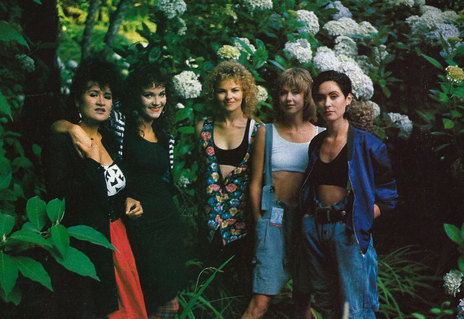
When The Cat's Away in New Plymouth, 1988: Annie Crummer, Debbie Harwood, Kim Willoughby, Dianne Swann and Margaret Urlich
When The Cat's Away - Melting Pot (1988)
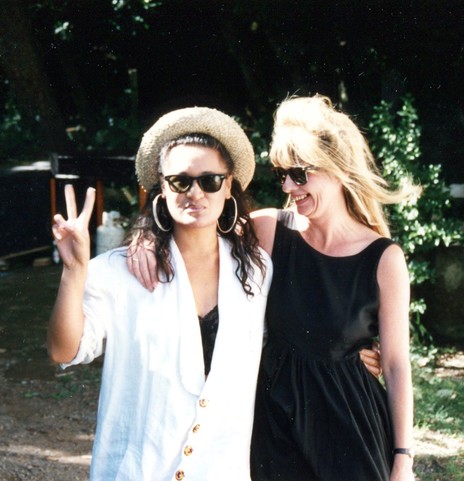
Annie Crummer with Maxine Morris, formerly of New Music Management, on the When the Cats Away Tour, 1988.
Photo credit:
Rikki Morris
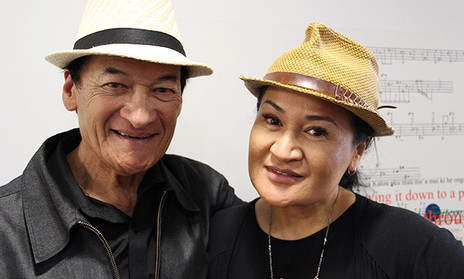
Will and Annie Crummer at Radio New Zealand.
Photo credit:
RNZ/Dru Faulkner
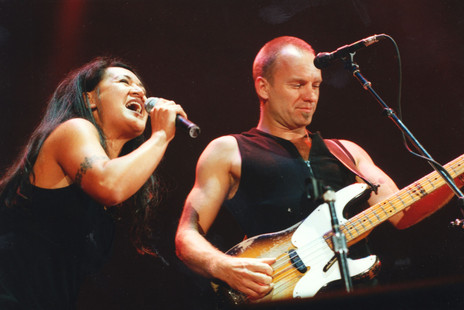
Annie Crummer performing on stage with Sting in the early 1990s
Photo credit:
Photo by Garry Brandon. Rip It Up Archives.
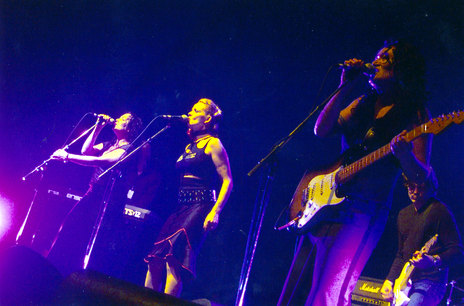
Debbie Harwood, Kim Willougby and Annie Crummer performing Dragon's April Sun in Cuba, at the APRA Silver Scrolls, 2001
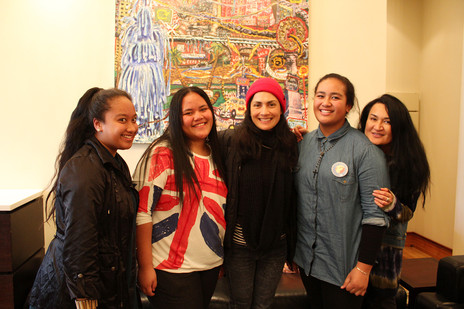
Tempo Style, winners of the 2014 Hook, Line and Sing-A-Long songwriting competition, in Roundhead Studios, with Annie Crummer and Anna Coddington, July 2014. From left are Maxine Vaihu (St Mary's College), Meleseini Puletau (Selwyn College), Anna Coddington, Julia Tu'unga (Auckland Girls Grammar), and Annie Crummer.
Photo credit:
New Zealand Music Commission
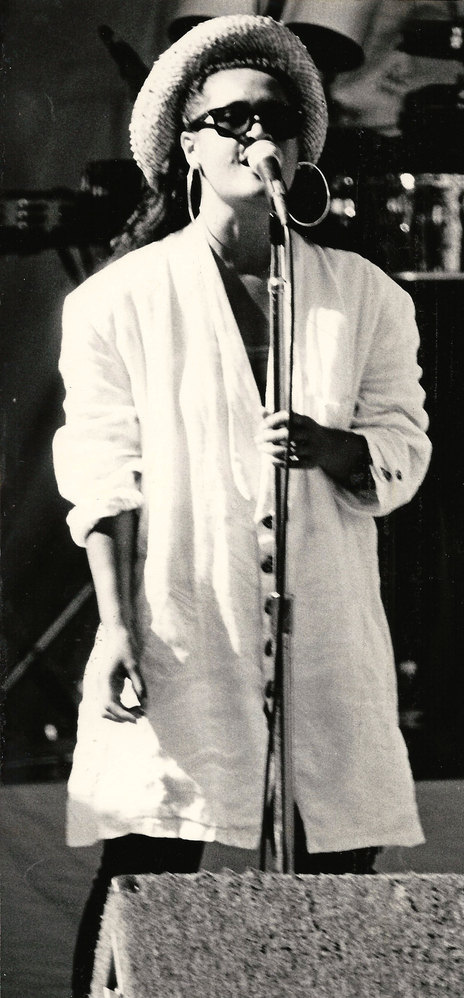
Annie Crummer with When The Cat's Away, late 1980s
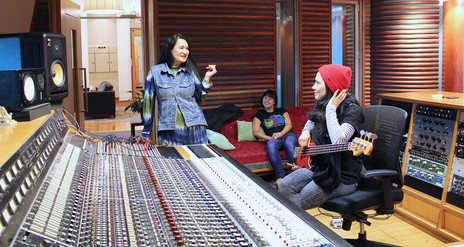
Annie Crummer, left, producing 'Islands', the winning song of the 2014 Hook, Line and Sing-A-Long songwriting competition, written by Tempo Style. At right is Anna Coddington, who laid down the guitar tracks.
Photo credit:
New Zealand Music Commission
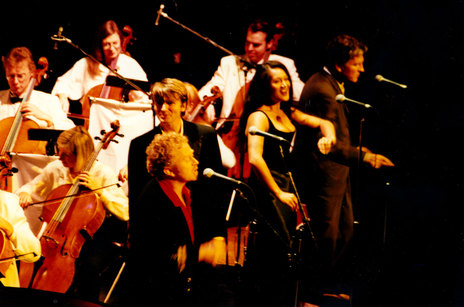
Neil taking a break from the mic at the 1996 ENZSO gig in Auckland - Dave Dobbyn, Neil Finn, Annie Crummer, Tim Finn
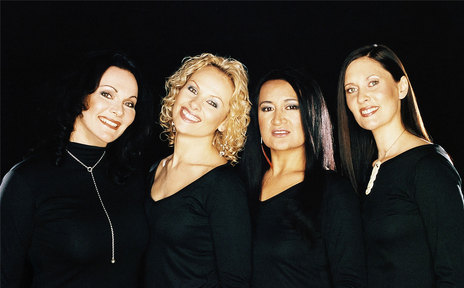
When The Cat's Away, 2001: Debbie Harwood, Kim Willoughby, Annie Crummer and Margaret Urlich
Photo credit:
Photo by Anthony O'Dwyer
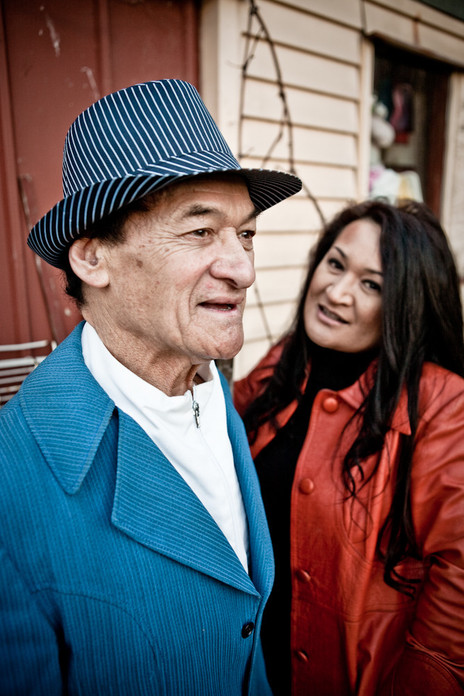
Will Crummer and his daughter Annie, 2011.
Photo credit:
Simon Moore
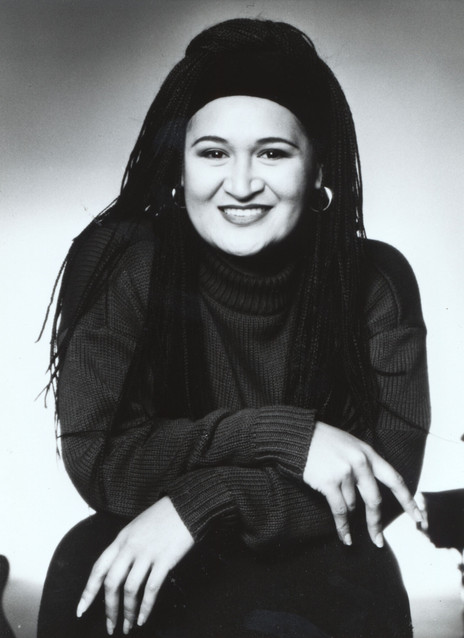
Annie Crummer in 1994
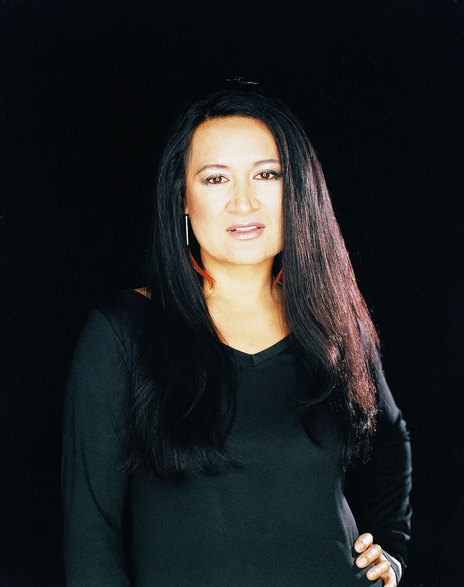
Annie Crummer photographed for the Live in Paradise tour, 2001
Photo credit:
Photo by Anthony O'Dwyer
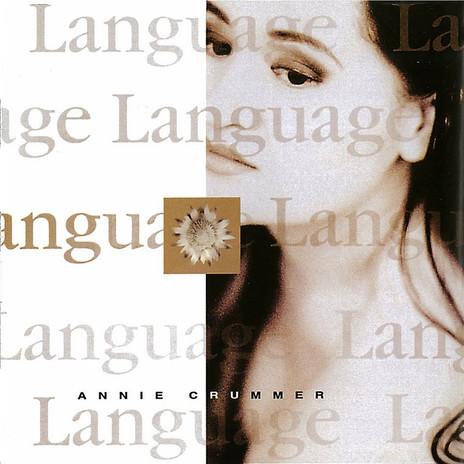
Annie Crummer's debut album, Language (WEA, 1992)
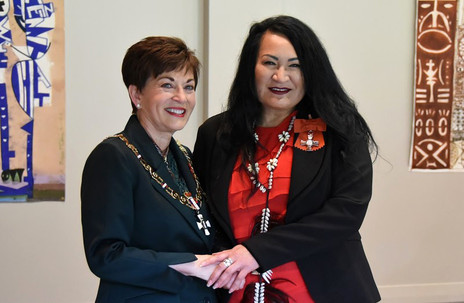
Governor-General the Rt Hon Dame Patsy Reddy awarding Annie Crummer the New Zealand Order of Merit for services to music, August 2017.
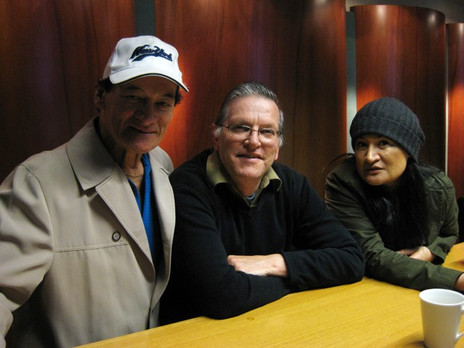
Will Crummer, Arthur Baysting, and Annie Crummer in Roundhead Studio, Auckland, 2010.
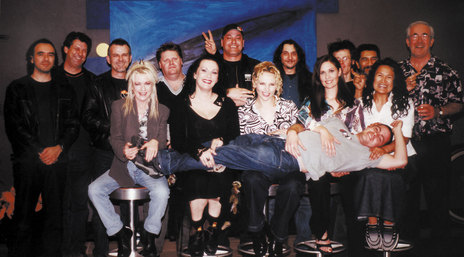
When The Cat's Away's tour group on the Asian Paradise tour, 2001: George Gorga (front of house sound), Robbie Barclay (production manager), Dave McIvor (crew), Marty Reynolds (lighting), Tony Flett (stage), Paul Lopez (crew), Colin Burrell (monitors), Rick Brown (stage), Ian Magan (promoter) and sprawled across the band, Chris Tate (sound). In front: Sharon O'Neill, Debbie Harwood, Kim Willoughby, Margaret Urlich and Annie Crummer.
Photo credit:
Photo by Mark Roach
When the Cat's Away - Asian Paradise (2001)
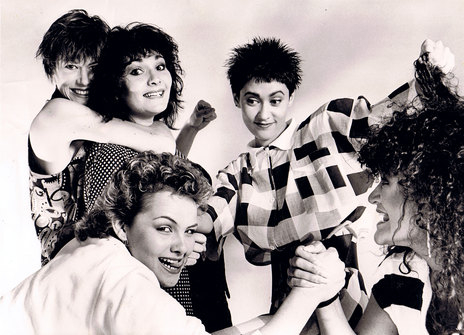
An early When The Cat's Away publicity shot: Dianne Swann, Debbie Harwood, Kim Willoughby (front), Margaret Urlich and Annie Crummer.
Photo credit:
Paul Ellis
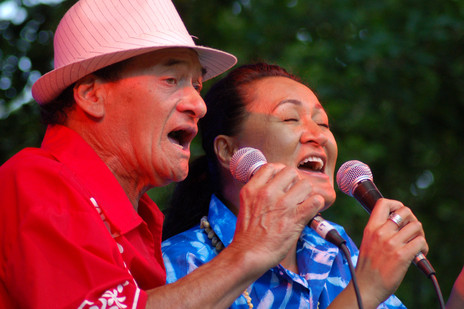
Will Crummer performing with his daughter Annie, 2011.
Photo credit:
Trevor Villers
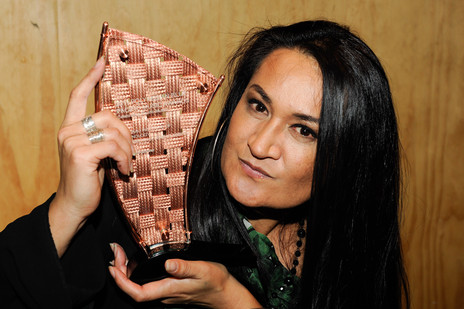
In 2011 Annie Crummer received the the Manukau Institute of Technology Lifetime Achievement Award.
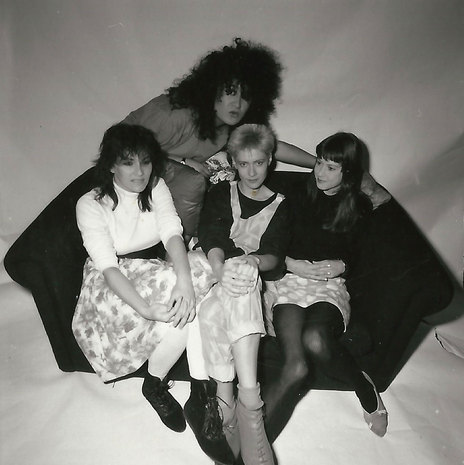
A previously unseen, pre-When The Cat's Away shot taken for a NZ Listener story in 1985 on the presenters and contenders for the New Zealand Music Awards: Debbie Harwood, Annie Crummer, Margaret Urlich and Dianne Swann
Photo credit:
Photo by John Reynolds
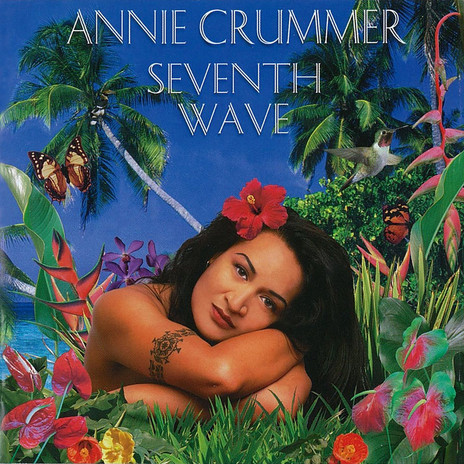
Annie Crummer's album Seventh Wave (WEA, 1996)
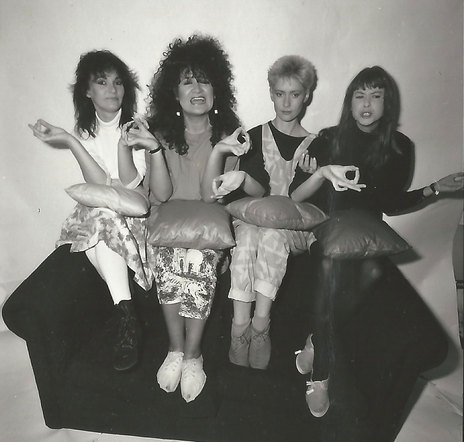
A previously unseen, pre-When The Cat's Away photo taken for a NZ Listener story in late 1985 on the female contenders and performers at the New Zealand Music Awards: Debbie Harwood, Annie Crummer, Margaret Urlich and Dianne Swann
Photo credit:
Photo by John Reynolds
Links:
Annie Crummer profile at NZ On Screen
Fiona Rae interviews Annie Crummer, Rip It Up, December 1992
Annie Crummer, Member of the New Zealand Order of Merit
Twelve Questions: Annie Crummer
Aaradhna, Annie Crummer, Bella Kalolo, Esther Stephens, sing 'Respect', 2017
Discography
Trivia:
In 2017 Annie Crummer was made a member of the New Zealand Order of Merit for services to music.
In 2011, Annie Crummer was awarded Senior Pacific Artist Award at the Creative New Zealand Arts Pasifika Awards.
Brian May of Queen called Annie Crummer "The voice of one in a million."
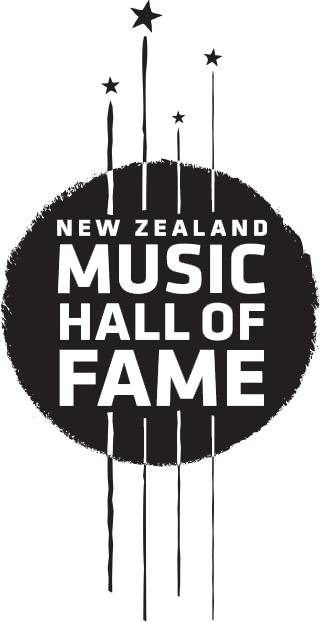
Annie Crummer was inducted into the New Zealand Music Hall of Fame | Te Whare Taonga Puoro o Aotearoa in 2021. The Hall of Fame is an initiative of Recorded Music NZ and the Australasian Performing Right Association (APRA), whose support of AudioCulture enables the site to stream music content.
Labels:
CBS
Warner Music
Philips


